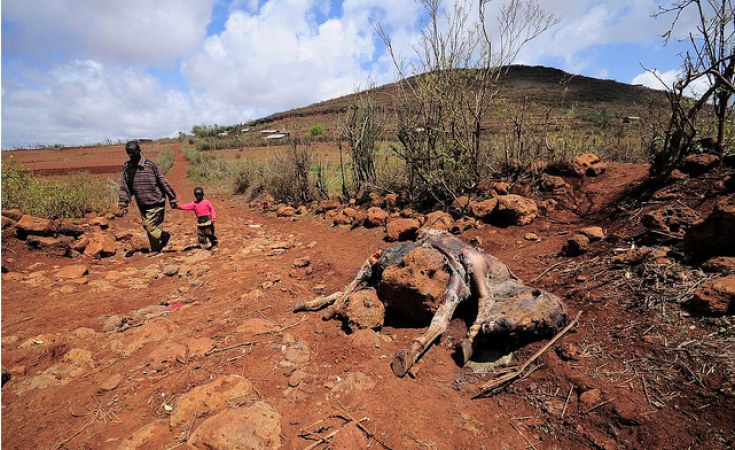Nairobi — The National Drought Management Authority (NDMA) has reported that the sustained drought situation in the 23 Arid and Semi-Arid Lands (ASALs) has seen increased risk of acute malnutrition and humanitarian assistance.
The authority noted that the number of people in need of humanitarian aid has risen to about 4 million with hospitals in those areas recording more cases of treatment offered to expectant mothers and children who are malnourished.
"The impact of the sustained drought situation has seen the number of people requiring humanitarian assistance stand at 4.35 million. Risks of Acute malnutrition continue to be reported in ASAL counties where 942,000 cases of children aged 6-59 months and 134,000 cases of pregnant or lactating women acutely malnourished continue to access treatment," read part of the statement.
According to the report, the persistent drought situation in the country has been attributed to constant failed and delayed rain in four consecutive seasons in most parts of the affected areas.
The report dated December 2022, also noted that the drought situation deteriorated in about 13 counties including Taita Taveta, Kilifi and Isiolo leaving Laikipia as the only county that improved to alert phase in the month of November.
"Only the county of Laikipia slightly improved to Alert phase leaving Thirteen (13) counties namely; Taita Taveta, Isiolo, Kilifi, Kwale, Samburu, Turkana, Wajir, Kitui, Kajiado, Mandera, Garissa, Tana River and Marsabit are in Alarm drought phase."
Some counties such as Narok and Makueni had however recorded an improvement from an initial alarm drought phase to a normal drought phase with the slight reported rains expected to completely reverse the current drought situation in the mentioned areas.
"Seven (7) counties including; Narok, Tharaka Nithi, Makueni, Nyeri, Meru and Laikipia are in the Alert drought phase. The remaining three (3) counties including Baringo, West Pokot and Lamu are in Normal drought phase," the report read in part.
The report comes when the government is keen on providing intergovernmental leadership, coordination and help on drought affected areas through donations to mitigate the situation.
President William Ruto also appointed a 14-member Drought Response Committee headed by Safaricom Chief Executive Officer (CEO) Peter Ndegwa to help cushion drought in the country.
Other measures that the government has taken include providing a pay bill number asking Kenyans of good will to contribute their cash to the appeal fund to assist those affected by the ongoing drought.
A resolution was also reached during the third Cabinet meeting chaired by President Ruto that saw Cabinet Secretaries forgo their one-month salary to drought.


